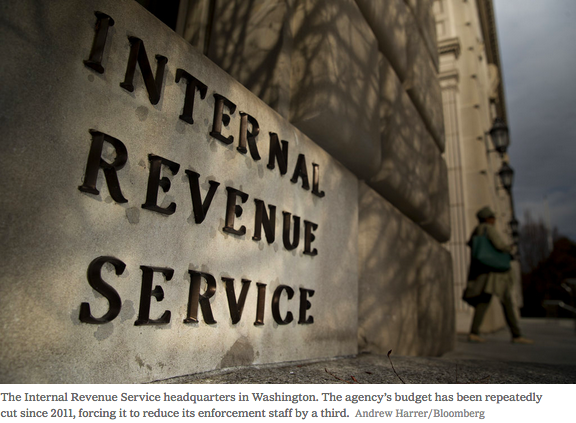Tax evasion is at the center of the criminal cases against two associates of the president, Paul Manafort and Michael D. Cohen. The sheer scale of their efforts to avoid paying the government has given rise to a head-scratching question: How were they able to cheat the Internal Revenue Service for so many years?
The answer, researchers and former government auditors say, is simple. The I.R.S. pursues fewer cases of tax evasion than it did less than 10 years ago. Provided you’re not a close associate of President Trump, there may never be a better time to be a tax cheat.
Last year, the I.R.S.’s criminal division brought 795 cases in which tax fraud was the primary crime, a decline of almost a quarter since 2010. “That is a startling number,” Don Fort, the chief of criminal investigations for the I.R.S., acknowledged at a New York University tax conference in June.
Bringing cases against people who evade taxes on legal income is central to the revenue service’s mission. In addition to recouping lost revenue, such cases are supposed “to influence taxpayer behavior for the hundreds of millions of American citizens filing tax returns,” Mr. Fort said. With fewer cases, experts fear, Americans will get the message that it’s all right to break the law.




